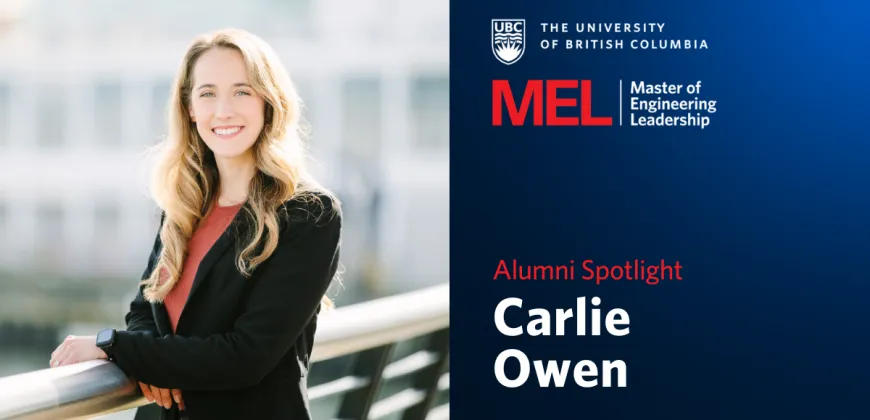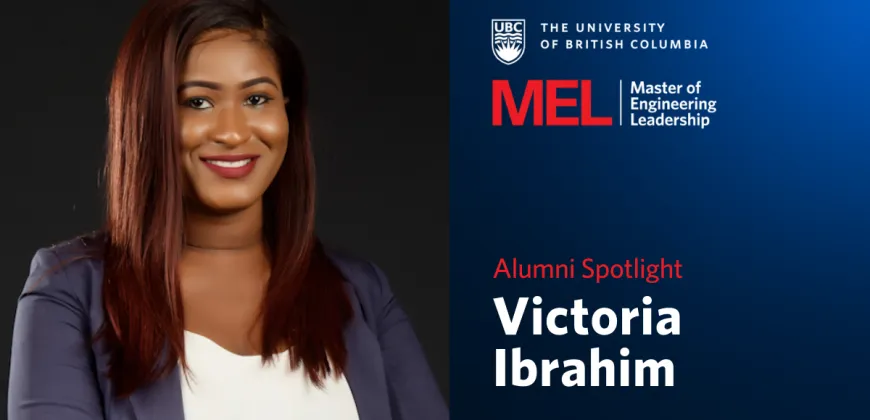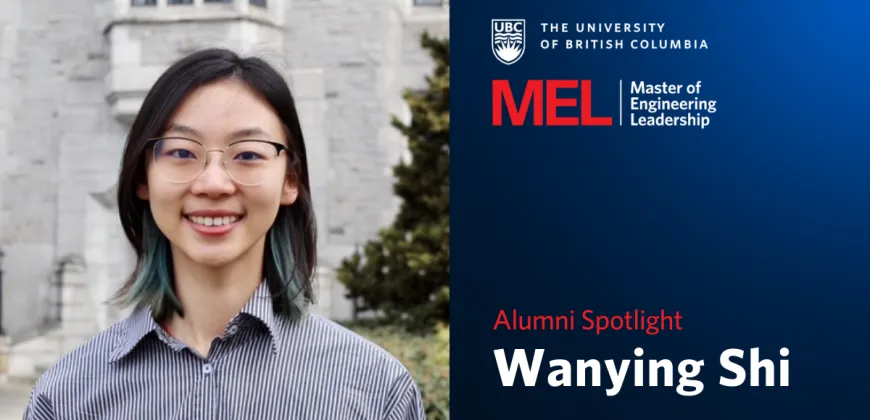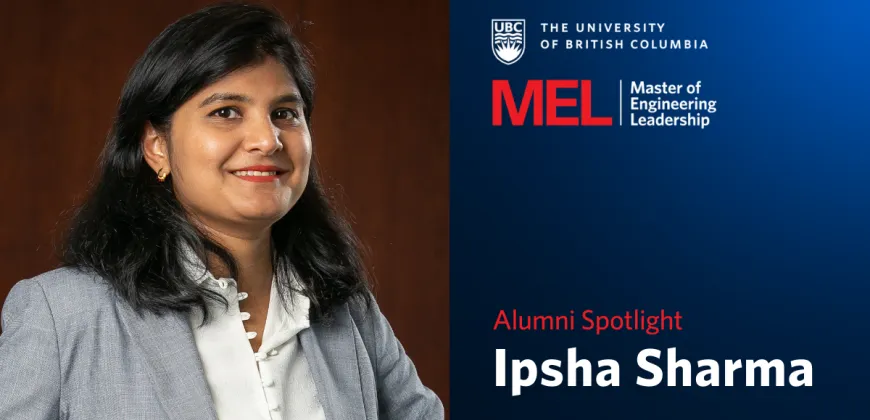Alumni Spotlight: Carlie Owen
Carlie Owen says the MEL in Clean Energy Engineering was a life-changing experience that helped her set a new professional direction. She’s now working as a consultant supporting government decision-makers in the shift to decarbonization.

Carlie Owen spent more than three years working for an oil and gas company as an industrial sales engineer for power generation facilities in West Virginia, Pennsylvania and Ohio.
While she lauded the fact that many coal-fired plants were shifting to natural gas, she also recognized that the needed shift to renewable energy sources was a long way off due to economics and other factors.
“It made me realize how big a change needs to happen if we want to fully decarbonize our world,” she says. “I wanted to be part of the change, but didn’t feel I could in my position at the time.”
She began researching graduate degrees that had a “sustainability spin” to support her desired career change. When she came across the Master of Engineering Leadership in Clean Energy Engineering, she found a program that aligned with her goal to pivot from the oil and gas sector to clean energy. The year-long accelerated program also appealed to her desire to focus on her professional development.
Capstone project opens doors
Clean Energy Engineering students complete graduate courses in energy generation, transmission and distribution, and energy use and management taught through the UBC Faculty of Applied Science and courses on business and leadership taught through UBC Sauder’s Robert H. Lee Graduate School.
They must also complete a capstone project in the third semester where they work on a defined project with an industry partner.
Many projects are proposed by program instructors, but students are also encouraged to seek out opportunities on their own matched to their specific interests or career goals.
Carlie took a proactive approach to build her professional network and reached out to individuals active in the province’s clean energy sector.
“Starting in the second semester, I began contacting individuals on LinkedIn to learn more about Vancouver’s clean energy industry,” she explains. “I set up weekly calls with different people, and through that I learned about Regenerative Waste Labs and the work they are doing in bioplastics.”
That then led to her capstone project where she worked with Regenerative Waste Labs to research the bioplastics supply chain.
“I did a cradle to grave analysis of the supply chain and spoke with 12 stakeholders to identify challenges to making this a circular system. It was a very interesting project: I learned a lot and it gave me great exposure to the industry.”
Analyzing pathways to net-zero
Carlie took the same proactive approach to her job search that she did to her capstone project. As a result of her networking on LinkedIn, she had built up her contacts in the industry and had a better sense of the types of opportunities she was interested in.
“When you’re a student, people are quite willing to give you their time and tell you about their work and organization,” she says.
“As a student, you’re not asking for a job at that point – you’re building relationships and learning from professionals in the field.”
One of the contacts she made was with Navius Research, a consulting company that quantitatively models the impact of climate and energy policies on the economy and environment.
In April 2021 she was hired to work with Navius as an energy and climate policy analyst, working with governments and non-governmental organizations to assess the impact of policy decisions on emissions and the economy.
“Governments are setting net-zero targets, but the pathways to get there are not always clear,” she says.
“Navius helps organizations understand what needs to happen to reach specific targets, whether that’s increasing the uptake of hydrogen as a clean energy fuel, supporting electrification of vehicles or making changes to building codes to reduce emissions associated with buildings.”
Pivoting from oil and gas to clean energy
Carlie says the MEL helped her successfully pivot her career from oil and gas to clean energy. “I’m using bits and pieces of what I learned throughout the program and applying them to my day to day, whether that’s doing research and analysis or working with clients.”
“Had I not gone through the program I would not be able to be in the position I am right now. This was a life-changing experience for me, and that’s what a master’s program should be. It’s far more than a piece of paper.”
–
Take the steps to join the next cohort of engineering leaders. If you haven’t already, assess your eligibility and sign up for the upcoming information session to learn how to submit a strong application. Learn more about this innovative master’s program:



